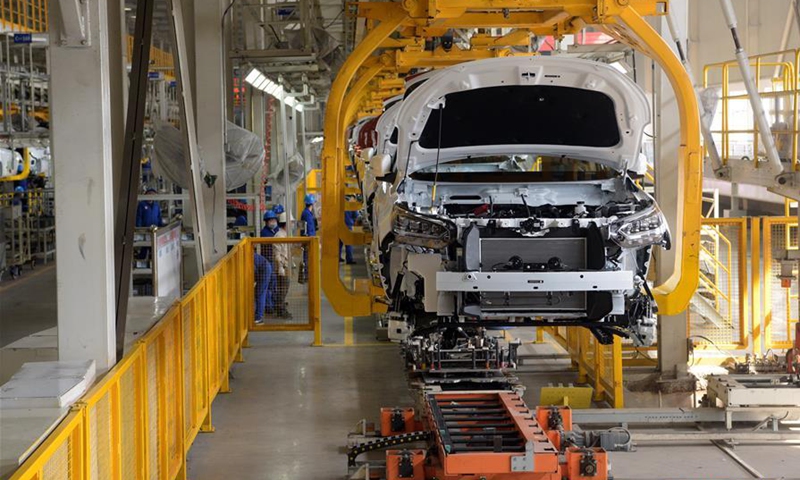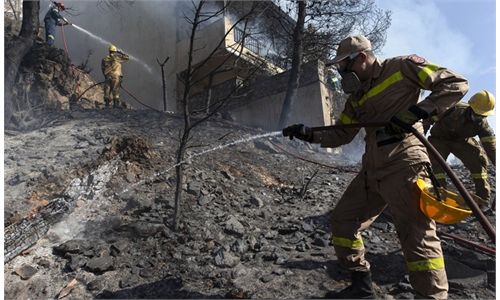
Workers work on the assembly line at a factory of vehicle manufacturer BYD Auto in Xi'an, northwest China's Shaanxi Province. File photo: Xinhua
Chinese electric vehicle (EV) industry players such as BYD are striving to secure deals with lithium mines overseas in a bid to curb surging prices of batteries while securing the stable supply of EVs, for which China is one of the leading producers in the world.
With the price of lithium soaring, along with prices of other bulk commodities caused by global inflation and soaring market demand, up to 20 EV companies -- including domestic brand BYD and foreign brand Tesla -- have announced price rises this year, according to media reports.
Now, some Chinese industry players are seeking deals with lithium mines overseas to stabilize prices and supplies.
According to media reports, BYD reportedly found six lithium mines in Africa, and it has announced intentions to acquire these mines.
The mines reportedly contain more than 25 million tons of ore with a lithium oxide grade of 2.5 percent, enough to meet BYD's requirements for the coming decade.
The news has not been officially confirmed by BYD, which declined to offer more information when reached by the Global Times on Sunday.
But industry sources said that the reported move will help to stabilize the supply chain of EVs, with the battery being the major component, and help curb prices.
Cui Dongshu, secretary general of the China Passenger Car Association, told the Global Times on Sunday that the move by BYD could be the tip of the iceberg since there will be more domestic EV companies going overseas to look for lithium supplies.
In September last year, Chinese EV battery maker Contemporary Amperex Technology reportedly made investments in several major lithium projects, including the acquisition of a Canadian lithium company and an investment in a joint lithium project in the Democratic Republic of Congo.
Impacted by factors like rising global sales of EVs and the vigorous development of the energy storage industry, lithium prices have shot up sharply in recent months.
Data showed that the price of battery-grade lithium carbonate increased from about 50,000 yuan ($7,505) per ton at the end of 2020 to 470,000-480,000 yuan now.
Since 2022, more than 20 new energy vehicle makers have announced price increases for nearly 40 models, with increases of several thousand or even tens of thousands of yuan.
Since China's EV market was cultivated by subsidies in the beginning, it is difficult for customers to accept that EV prices are significantly higher than comparable fuel-fired vehicles, industry experts said.
"If the price increase of batteries exceeds the level that new energy vehicle companies can bear, it is possible that the production and sales of new energy vehicles will decline ... after all, the price is important to customers," Cui said.
From January to April, China's EV sales took 57 percent of the world's total, the expert said.
"China's EV industry has grown so rapidly that it has outpaced broad expectations. So even if sales decline as prices rise, it should be within a measurable range," Cui said.



